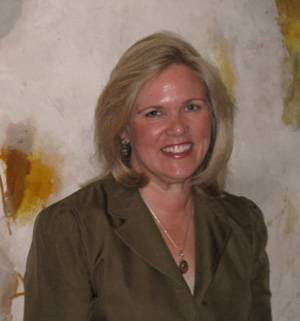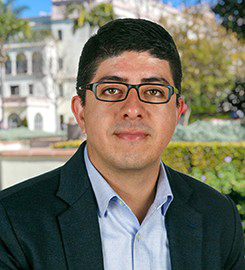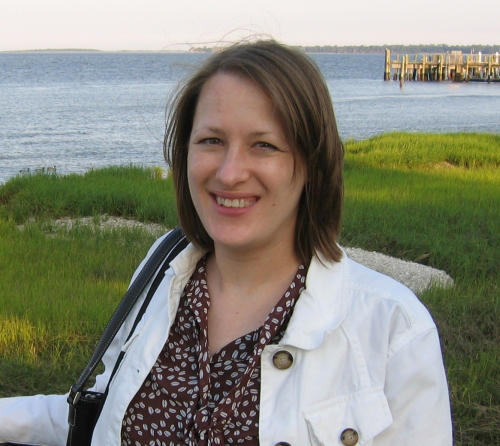2021 inaugural
x-dber conference

Inaugural conference hosts more than 550 people from 11 countries
The discipline-based education research (DBER) community at the University of Nebraska-Lincoln (UNL) hosted an online conference to discuss how theories, methods, and application of education research cross disciplinary boundaries. The X-DBER 2021 conference was held March 1-3, 2021. More than 550 people registered to attend the X-DBER 2021 conference; participants came from 11 countries and 41 states in the U.S.
The goal of this conference was to bring together DBER researchers from across disciplines (e.g., biology, chemistry, engineering, geoscience, math, physics) to learn about ongoing research and develop future directions. The conference opened with a welcome address from Chancellor Ronnie Green, followed by five themed sessions led by keynote speakers:
- Integrating disciplinary practices (Dr. Nicole Becker, University of Iowa, chemistry);
- Learning and cognitive research (Dr. Joanne Lobato, San Diego State University, math);
- Diversity, inclusion, and equity (Dr. Alex Mejia, University of San Diego, engineering);
- Student experiences and affect (Dr. Beth Schussler, University of Tennessee-Knoxville, biology); and
- Educational tools and interventions (Dr. Kathy Perkins, University of Colorado-Boulder, physics).
The meeting allowed researchers and practitioners to identify synergies in theoretical and research approaches across disciplines to help the diverse communities solve novel problems and translate research into classroom practices. This virtual setting allowed researchers across all ranks (e.g., graduate students, postdocs) to present their work to a national audience and helped connect these researchers to broader communities and research projects.
Each session keynote was followed by concurrent talks and small group discussions, which allowed participants to further engage with the session themes. The concurrent talks gave brief but often powerful insights into other work being done in the field, and the subsequent discussions provided a venue for participants to consider cross-cutting findings and future directions. The conference culminated with a virtual poster session featuring more than 150 posters. Altogether, the conference provided a timely venue for the DBER community to consider how cross-disciplinary research can address critical questions in STEM education.
To stay connected or get involved with this group, you can ask to join our Sched site by emailing nebraskamath@unl.edu or follow us on Twitter @NebraskaMATH. We hope to host another conference in the future.
Plenary Speakers
Nicole Becker, Ph.D.
Department of Chemistry, University of Iowa | Video of Plenary Talk | Slides

Research in the Becker group explores how undergraduate chemistry students develop expertise in using models to predict and explain chemical behavior. Using qualitative and quantitative research methods, we explore the impact of instructional strategies on scaffolding students’ model-based reasoning in chemistry contexts. The goal of this work is to inform the design of evidence-based instructional materials for introductory chemistry courses and to improve student performance and retention in these courses.
Joanne Lobato, Ph.D.
Department of Mathematics and Statistics and Center for Research in Mathematics and Science Education, San Diego State University | Video of Plenary Talk

Dr. Lobato’s research has involved developing the actor-oriented transfer perspective, which led to an interest in “noticing” from both psychological and socio-cultural perspectives. More recently, Dr. Lobato has been motivated by the need for alternative models of videos to be used in learning mathematics online and by the emerging research area of learning vicariously through observing online dialogues. She has pursued these interests through empirical studies on the learning and teaching of the following topics at the secondary school level: algebraic reasoning, ratios and proportions, slope and linear functions, quadratic functions, rates of change, and multiplicative reasoning.
Alex Mejia, Ph.D.
Department of Integrated Engineering, University of San Diego | Video of Plenary Talk

Dr. Mejia investigates the funds of knowledge of Latinx adolescents, and how they use these funds of knowledge to solve engineering problems in their communities. Dr. Mejia is particularly interested in how Latinx adolescents bring forth unique ways of knowing, doing, and being that provide them with particular ways of framing, approaching, and solving engineering problems. He is also interested in engineering and literacy education for equity, engineering literacies in K-16 settings, equity-oriented instructional strategies that support engineering activity, the use and application of critical theories in engineering education, and the development of critical consciousness in engineering through social justice.
Kathy Perkins, Ph.D.
Department of Physics, University of Colorado-Boulder | Video of Plenary Talk | Slides

Dr. Perkins is Director of the PhET Interactive Simulations Project and Director of CU’s Science Education Initiative. She is also an Associate Professor Attendant Rank in Physics, specializing in physics education research. Her work in science education research has focused on: pedagogically effective design and use of interactive simulations; sustainable course reform; students' beliefs about science; and institutional change. Before arriving at CU, she was trained as an experimental physicist and atmospheric scientist at Harvard University, and transitioned to physics education research in January 2003 as a post-doctoral researcher with Carl Wieman.
Beth Schussler, Ph.D.
Department of Ecology and Evolutionary Biology, University of Tennessee Knoxville | Video of Plenary Talk | Slides

The primary research focus of Dr. Schussler’s lab is the shaping of undergraduate learning environments to foster meaningful student learning. Although learning environments are organized around specific curricula, the effectiveness of the curriculum is often impacted by the instructor and/or student perception of the instructor. Much of my lab’s research has focused on this interplay between curricula and the instructor and how it affects student learning. Some lab research specifically informs teaching professional development (TPD) for biology graduate teaching assistants. We have found, for example, that student perceptions of GTAs change over the semester, are impacted by the title the GTA uses with their students, and are linked to particular teaching behaviors that can predict perception of teaching effectiveness. These lines of research led to the creation of an NSF-funded research coordination network (BioTAP) focused on improving GTA TPD. BioTAP members have co-published a national survey on the state of GTA TPD at institutions across the US and Canada and proposed a conceptual model for conducting research on GTA TPD programs, which is used as part of the BioTAP Scholars program.
Wrap-up
The five keynote speakers delivered reflections on their own research and highlighted critical areas for future investigation. Becker discussed how students reason with respect to graphical representations. Lobato explored how students can engage in vicarious learning by watching dialogue-based online videos. Mejia proposed funds of knowledge as a framework to understand participation of Latinx students in STEM programs. Schussler addressed how instructors might convey a hidden curriculum that helps students develop skills to manage course-related emotions, such as anxiety. Perkins gave an overview of new PhET simulations and considerations with respect to eliciting productive student learning behaviors.
Registration is closed
Registration for the 2021 conference is now closed.
The conference is free for participants. If you’d like to give a talk or poster, please prepare and submit an abstract of no more than 250 words, and submit it by Jan. 17. The talks will be 12 minutes plus a 3-minute Q&A. Posters will be submitted later as PDFs for Padlet, along with an introductory video for each poster presenter. Registration will close Feb. 21, 2021.
You will need a CSMCE Application/Registration Portal account for registration. Log in with your account details and then select 2021 Virtual X-DBER Conference from the list of programs. If you registered for the postponed 2020 conference, your same login and password will work and the first step should pre-fill your previous entries.